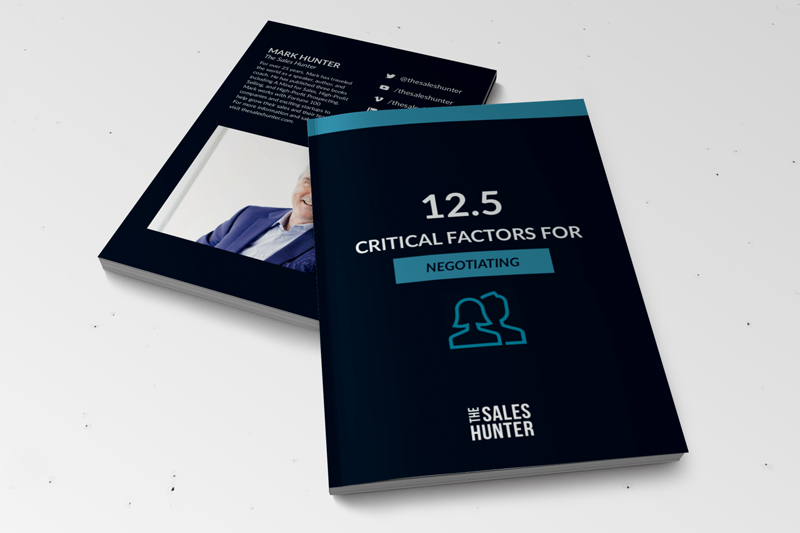 I’m confident your sales motivation is increasing if you are following my series Will Your Customers Leave You If You Raise Prices: 8 1/2 Questions to Ask Yourself.
I’m confident your sales motivation is increasing if you are following my series Will Your Customers Leave You If You Raise Prices: 8 1/2 Questions to Ask Yourself.
So far we’ve looked into the questions How do you know they have even started the process of finding an alternative source? and How much will it cost the customer to switch suppliers?
Today I want to focus on question 3:
What is the status of the new supplier they say they will switch to?
Don’t think for a moment that all suppliers are created equal or that all suppliers operate the way you do. More supply-chain problems develop due to vendor mismanagement than anyone can ever begin to imagine.
So if your customer threatens to switch to a different vendor or supplier, don’t panic. Instead, do your homework.
With regard to knowing a supplier status, consider whether your customer has even done a financial assessment of the supplier to determine if they are financially healthy. Nothing can be worse for a buyer than to secure what they feel is a great low-price contract from a new vendor, only to have them go out of business before the contract is fulfilled.
Salespeople need to monitor the financial status of their competitors, particularly when a competitor is offering a customer a price that is very low.
For some suppliers this could be nothing more than an attempt to create cash-flow to avoid going out of business. This issue is much bigger than most people realize and the consequences for all the parties involved can be significant.
Another area where a new supplier can lead a buyer astray is in letting them believe they, the supplier, will be able to do any number of things for the customer anytime. What makes a buyer believe any of this?
If the supplier being considered is new, then they don’t have the track record you have as an existing supplier.
You’re the one that has been able to establish a track record with the customer, and it’s something that you should not hesitate to talk about with the buyer.
One final area to look at is product quality.
Depending on what it is you sell, there can be wide variances in quality the buyer may not necessarily understand — but the actual user will understand and value. If a buyer mentions they are going to switch to a new supplier, one of the first things you should do is to ask them how the users of the item feel about.
When you ask, be specific with the names you use. Let the buyer know that you know who the users are. Let the buyer believe you know the users very well. Depending on how the buyer responds, you may want to try and arrange a meeting between you, the buyer and the user.
Bringing up user names is a great strategy to use, because many buyers feel their most difficult meetings are not with salespeople but with the people they support in their own company.
Many times the users in a company — the people actually using the product the purchasing department buys — carry significant weight in the company. They will not hesitate to push back on a purchasing department. A big reason they will do this is in their mind, price is a secondary issue. The primary issue is having their needs met in terms of quality. If this is the case, you are in a very strong position, especially if you have been able to develop a relationship with the users.
As salespeople, we simply must be prepared if a customer is threatening to switch to a different vendor.
And one way to be prepared — and to protect your sales motivation — is to determine if the other vendor can even handle the order. And will the people who actually use the product be receptive to a switch?
Stay tuned as we’ll be exploring more in our series Will Your Customers Leave You If You Raise Prices: 8 1/2 Questions to Ask Yourself. Here’s to Great Selling!
Copyright 2011, Mark Hunter “The Sales Hunter.” Sales Motivation Blog.












2 Responses
I have problem with the our customers having good relations wit us for 4-5 years and than after sundely switch over to new supplier, therefore pl inform us what may be our drawback or mistakes